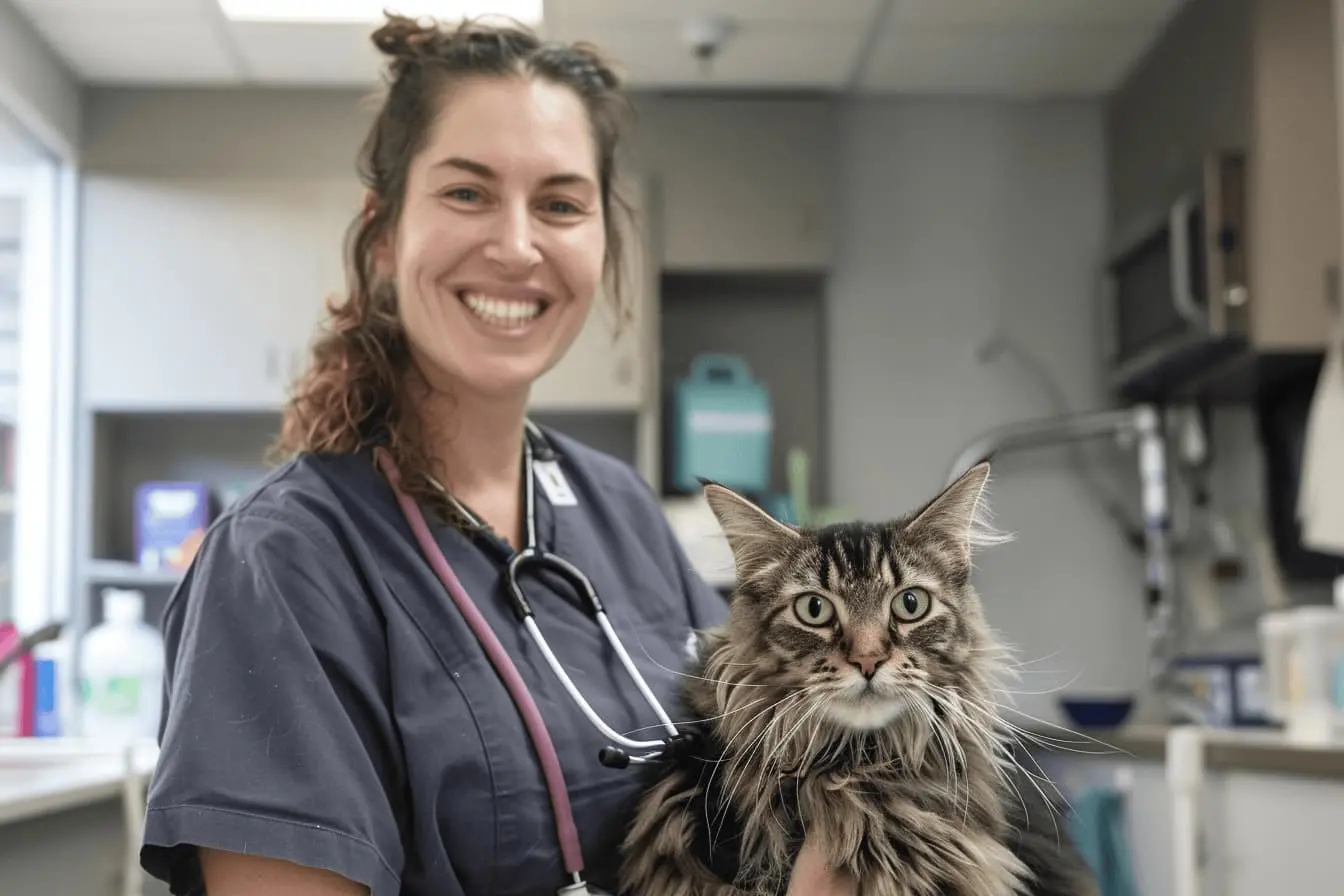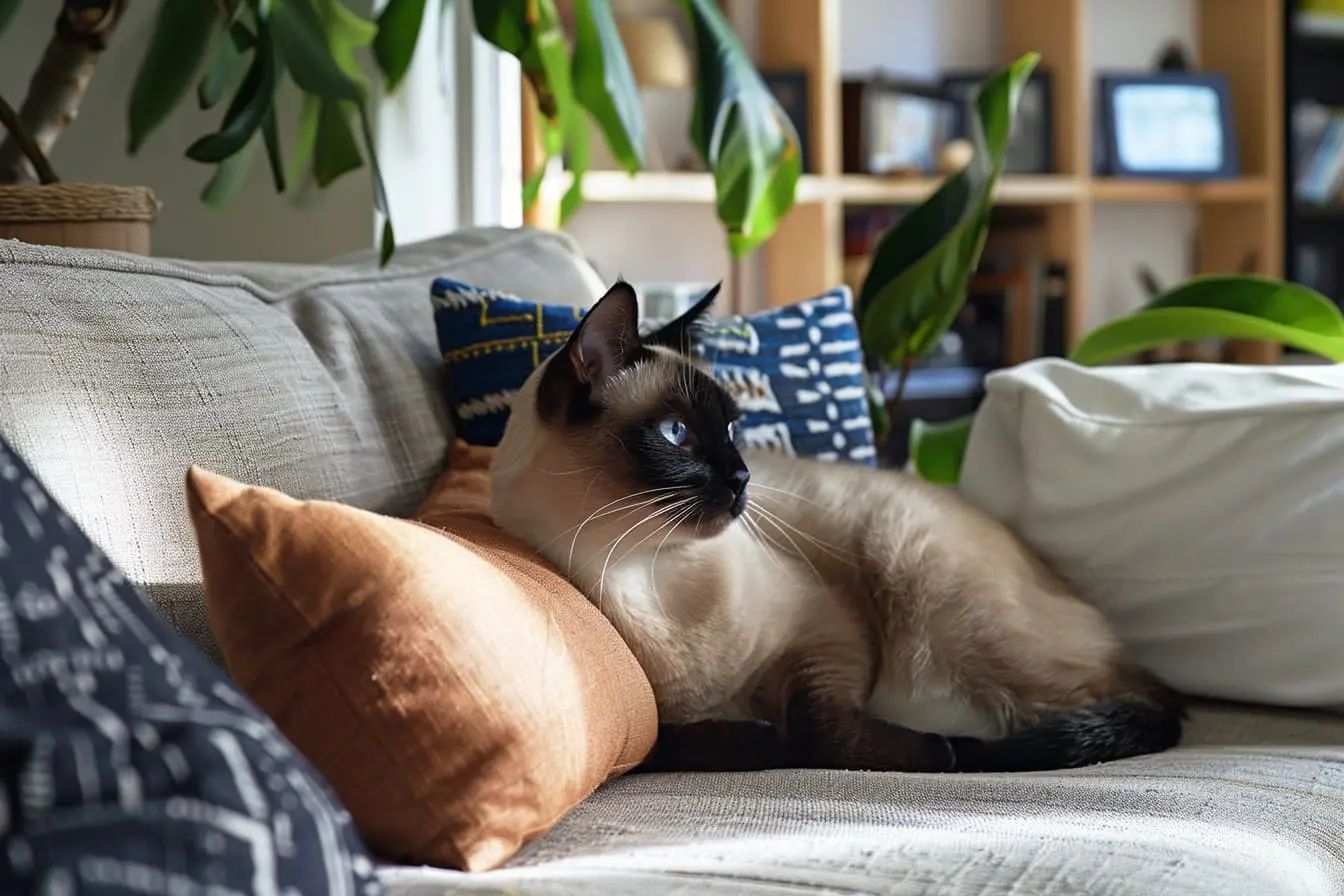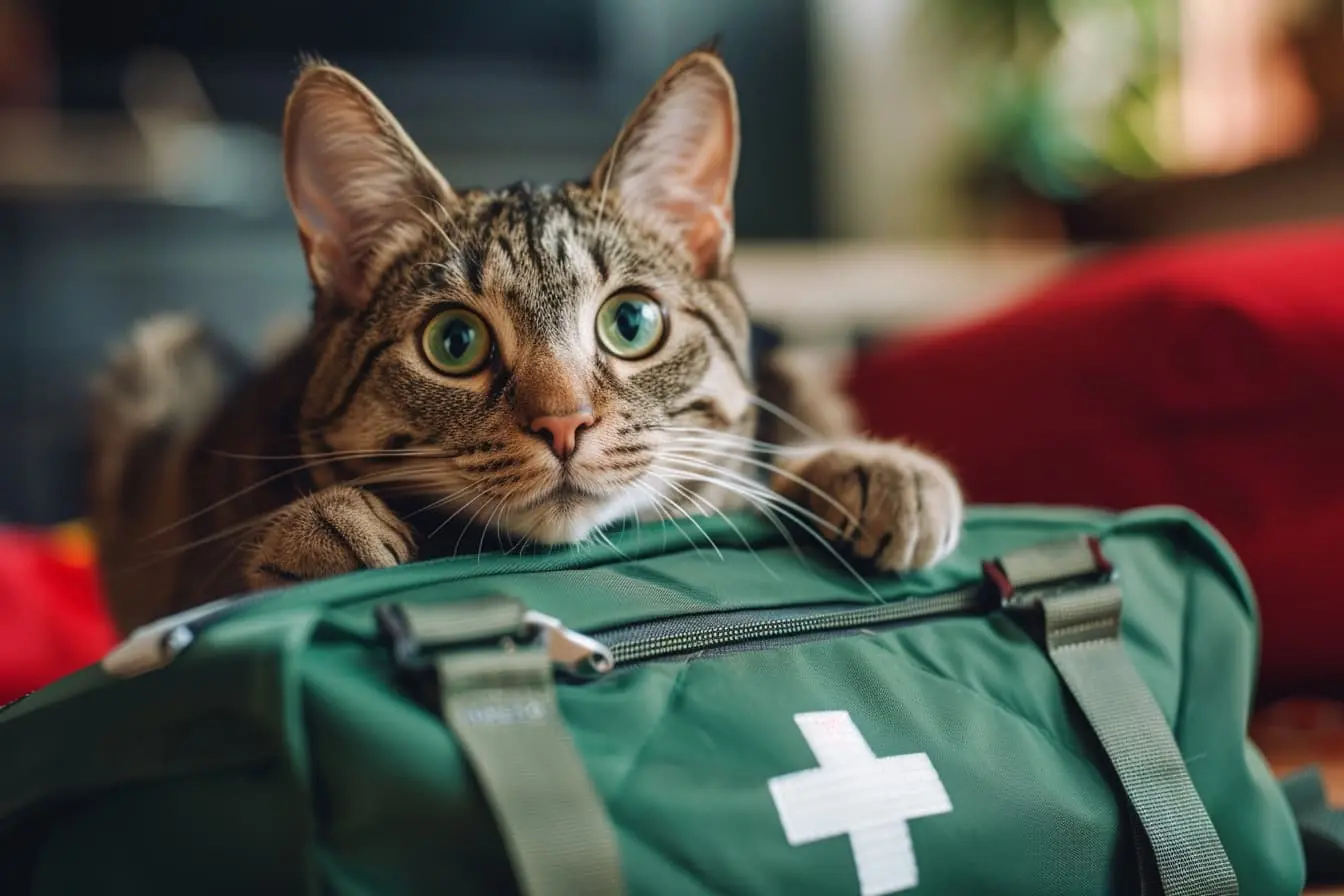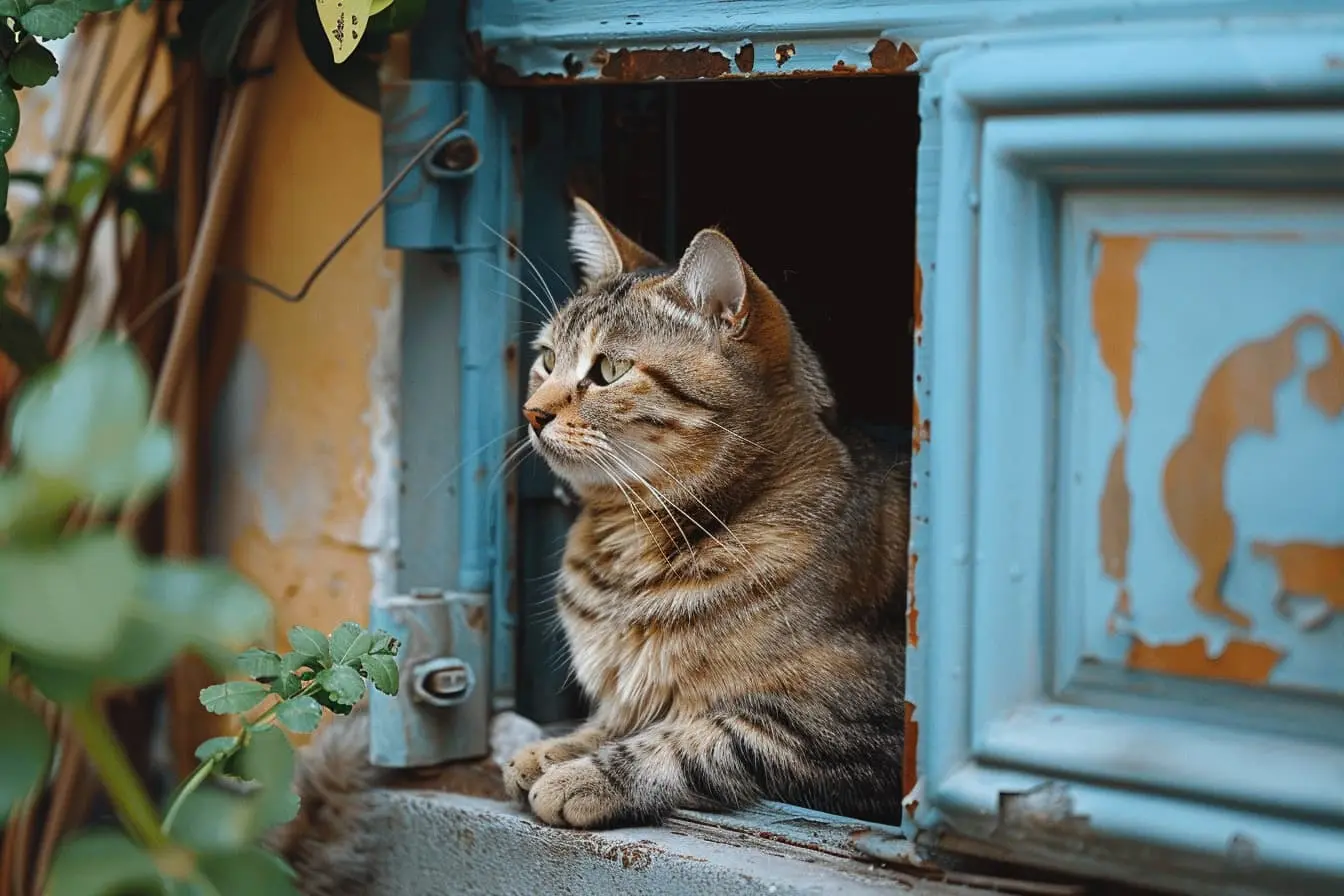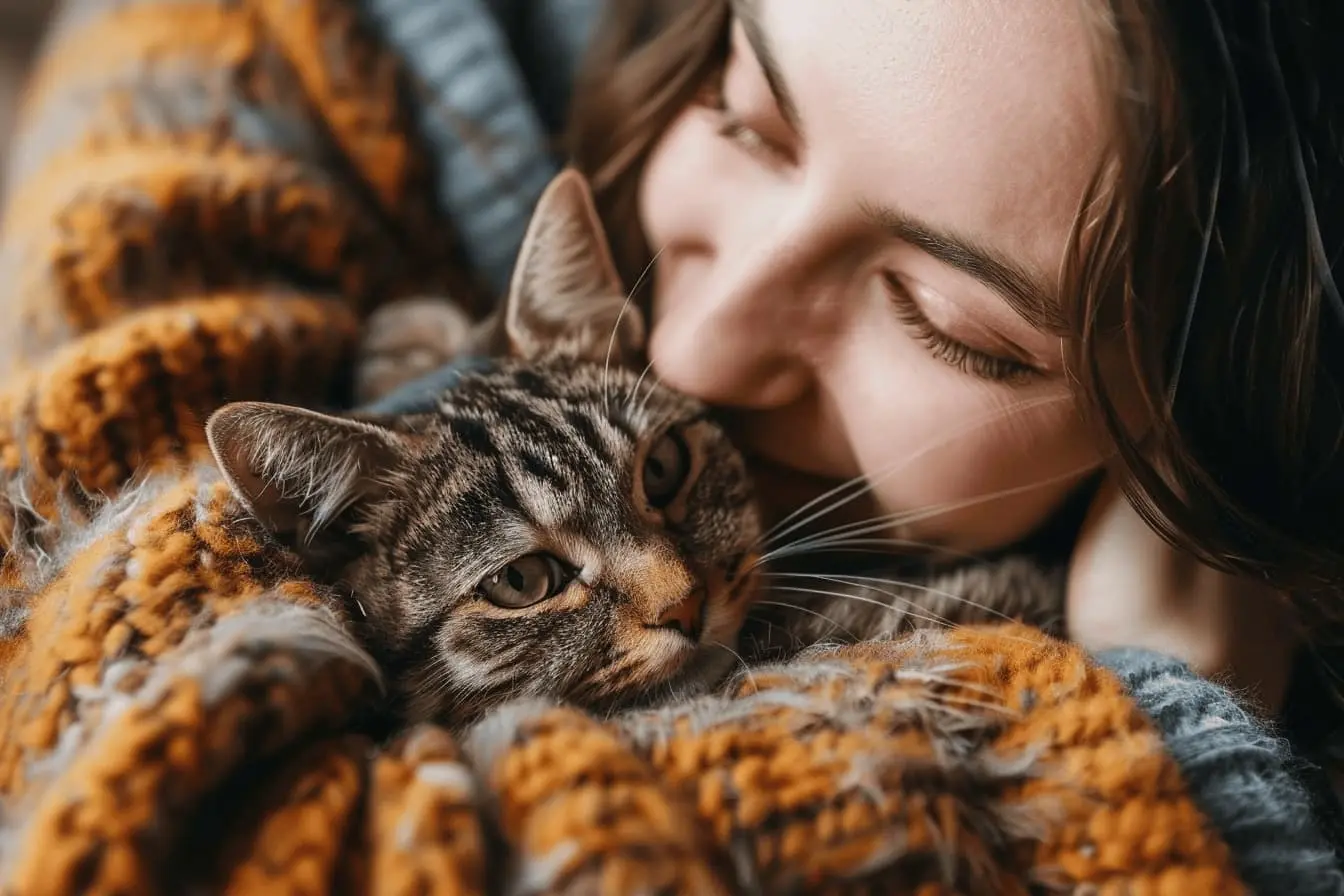
Is Your Cat at a Healthy Weight? Understanding the Right Weight Range for Your Feline Friend
Maintaining a healthy weight is just as crucial for our feline friends as it is for us. With the rise in pet obesity, understanding what constitutes a healthy weight range for your cat is fundamental to ensuring their well-being, longevity, and overall quality of life. This guide will help you determine if your cat is within a healthy weight range and provide tips to manage their weight effectively.
Recognising the Ideal Weight
A cat's ideal weight depends on various factors, including breed, age, and size. Most domestic cats should weigh between 8 to 10 pounds, but this can vary significantly. For instance, larger breeds like Maine Coons can weigh up to 18 pounds and still be considered healthy, while smaller breeds like Siamese might weigh around 5 to 10 pounds when healthy.
Evaluating Your Cat's Body Condition
Visual and physical assessments are key to determining your cat's body condition:
Visual Inspection: View your cat from above. A healthy cat will have a visible waist behind the ribs. From the side, there should be a slight tuck in the abdominal area. An overweight cat might have a rounded abdomen, a lack of visible waist, or even fat deposits over the hips and face.
Physical Feel: Place your hands on your cat's sides. You should be able to feel the ribs without pressing hard. If you can't feel the ribs, your cat might be overweight. Conversely, if the ribs are too prominent, your cat could be underweight.
Understanding the Risks of Obesity
Excess weight can lead to several health issues in cats, including diabetes, heart disease, arthritis, and even a shortened lifespan. Obesity is often the result of overfeeding and lack of physical activity. It's essential to address weight issues early to prevent these health complications.
Tips for Maintaining a Healthy Weight
Proper Diet: Consult with your vet to find the best diet plan for your cat, considering their age, size, and activity level. Measure meals instead of free feeding, and be mindful of the calorie content in treats. Regular Exercise: Encourage playtime with toys that stimulate your cat's natural hunting instincts. Interactive toys, laser pointers, and even simple cardboard boxes can provide excellent physical activity. Routine Check-ups: Regular veterinary visits are crucial for monitoring your cat's weight and overall health. Your vet can provide personalized advice and adjustments to your cat’s diet and exercise routine.
Monitor Progress: Keep a record of your cat's weight and body condition, adjusting their diet and exercise as needed. Gradual weight loss is safer and more sustainable than drastic changes. When to Seek Professional Advice
If you're unsure about your cat's weight or how to manage it, consult a veterinarian. They can assess your cat's health, recommend a tailored diet plan, and provide guidance on safe weight loss or gain strategies.
Conclusion
A healthy weight is paramount to your cat's overall well-being. By understanding the right weight range for your feline friend and taking proactive steps to maintain it, you can contribute significantly to their happiness and longevity. Remember, each cat is unique, and what's healthy for one may not be for another. Always prioritize personalized care and advice from veterinary professionals to ensure your cat stays at an optimal weight throughout their life.
Vets near you
Speciality vets
- Aquatics vet specialists
- Birds vet specialists
- Camelids vet specialists
- Cats vet specialists
- Cattle vet specialists
- Deer vet specialists
- Dogs vet specialists
- Equines vet specialists
- Exotic vet specialists
- Goats vet specialists
- Pigs vet specialists
- Poultry vet specialists
- Sheep vet specialists
- Small Mammals vet specialists
- Wild vet specialists
Vet facilities
- Accessible by public transport
- Blood testing
- Car park nearby
- Client car park
- Dentistry
- Diagnostic imaging
- Disabled public access
- Flea and worm treatments
- Microchipping
- Mobile services
- Neutering
- Open at weekends
- Out-of-hours service
- Referral interests
- Referrals only
- Street parking outside
- Toilets available
- Vaccinations
